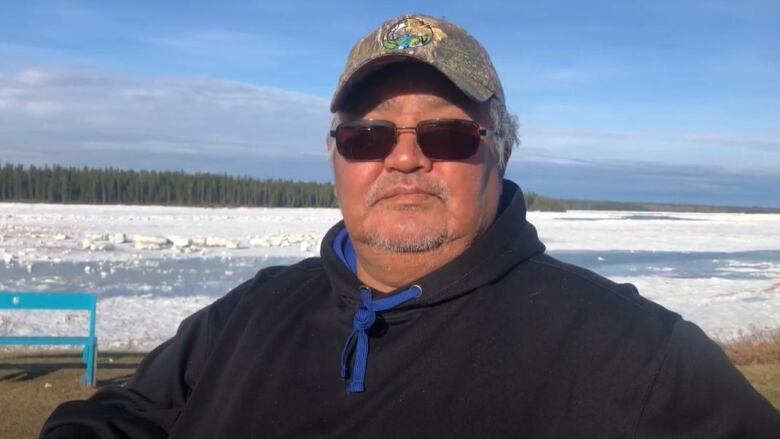Pope's apology meaningless without rescinding Doctrine of Discovery, says Dehcho First Nations
'The Church [was] the one that started this whole thing, and they have to end it by rescinding that document'

The Dehcho First Nations says if the Pope really wants to make amends with Indigenous people in Canada, he needs to rescind a racist policy that let Europeans claim Indigenous lands as their own the Doctrine of Discovery.
Last month, the Vatican announced Pope Francis would be visiting Canada in July. During that visit, he is expected to apologize on Canadian soil for the Roman Catholic Church's role in residential school abuses.
Stanley Sanguez, the interim grand chief for the Dehcho First Nations, told CBC an apology alone doesn't cut it. After its spring leadership meeting, the Dehcho First Nations released a statementcalling on the Vatican, the Government of Canada and the Crown to reject the "fraudulent and evil" Doctrine of Discovery.
"Leadership had a statement to the Pope saying that the Pope's apology is meaningless to the Dehcho unless the Pope rescinds the Doctrine of Discovery," Sanguez said.
"The Church [was] the one that started this whole thing, and they have to end it by rescinding that document."
What is the Doctrine of Discovery?
The Doctrine of Discovery was used by European explorers to claim land that they thought was empty or populated by "savages,"saidNiigaan Sinclair, an Anishnaabe academic and writer.
"When Europeans arrived, they had these things on the ships called papal bulls, which were decrees from the Pope where basically the Pope had interpreted law according to the way he understood it," Sinclair explained.
It's a racist doctrine dating back to the 1400s, Sinclair said, that was built upon the idea that Indigenous people didn't have government, writing or civilization.
It's also the foundation on which Canada was built.
Sanguez said it was "heartbreaking" for him to read that document, which overlooked Indigenous people.
The letter from Dehcho First Nations calls for the Vatican, Canadian government and Crown to all acknowledge "what we all know to be true: that the land now known as Canada was not vacant or ungoverned when Europeans arrived and that it was actually governed by sovereign nations with our own institutions and laws."
What would it mean to rescind it?
Just as a house without its foundation would collapse in on itself, the Doctrine of Discovery would need to be replaced by something else instead of just being removed, said Sinclair.
"On one level, [it would be] very exciting, because we have to face the reality that the Doctrine of Discovery and therefore Canadian law is based on racist notions," he said.
One idea Sinclair has is to replace the Doctrine with partnerships, by recognizing Indigenous governments on par with provincial and territorial governments.
It's a model he could see working in the North, where the Government of the N.W.T. and the Government of Nunavut are already set up to work in partnership with First Nations.
It would be a much tougher road for southern provinces like Alberta, Ontario or Quebec though, he added, since governments would need to be willing to share power with First Nations.
"That would be a much bigger uphill battle."
With files from Lawrence Nayally












_(720p).jpg)


 OFFICIAL HD MUSIC VIDEO.jpg)
.jpg)



























































































